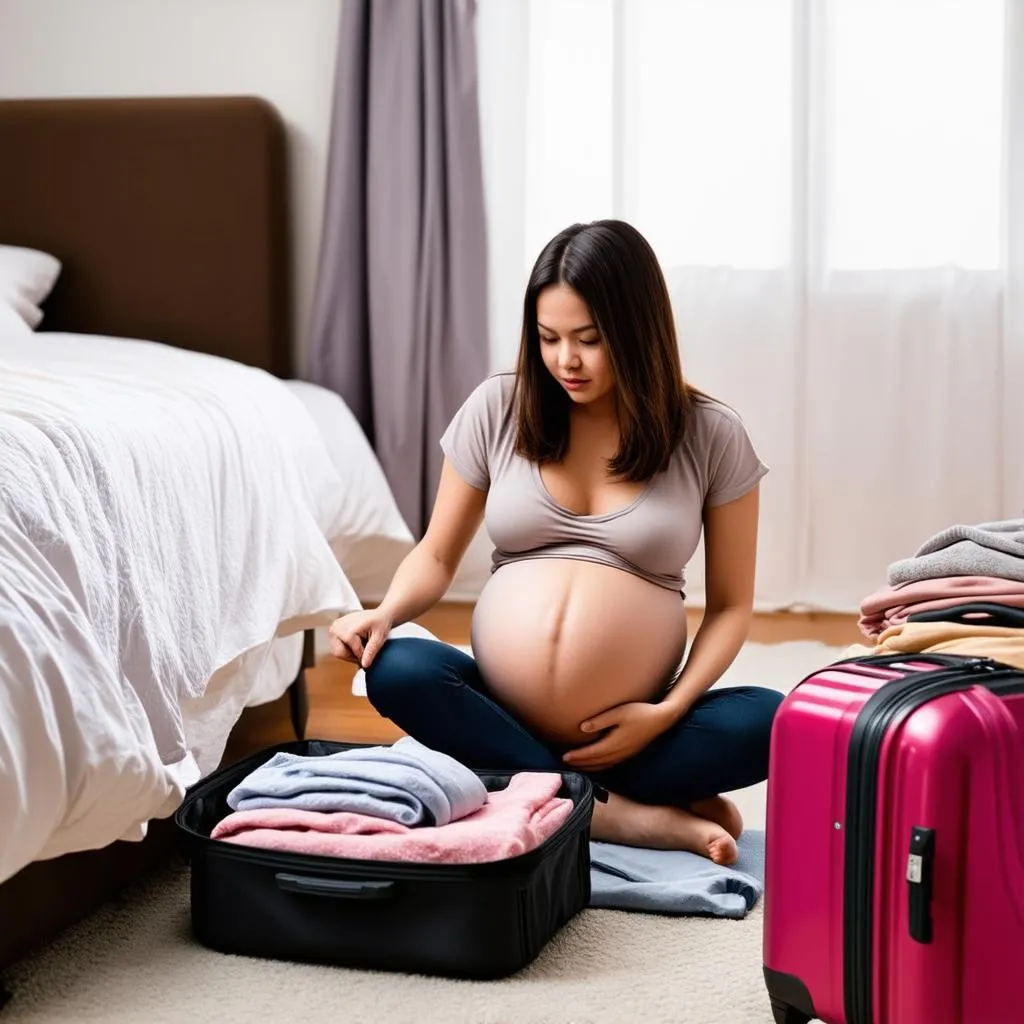Remember that magical trip to Positano, Italy you’d always dreamed of? Sun-drenched beaches, colorful houses clinging to the cliffs, and the freshest seafood pasta you could imagine. Now you’re pregnant, and you can’t help but wonder, “Can I still chase that Italian dream, or is it time to hang up my travel hat for a while?”
Deciding when to stop traveling during pregnancy is a personal one, with no one-size-fits-all answer. It’s a delicate dance between your wanderlust and your growing baby’s needs. Luckily, we’re here to help you navigate this exciting, albeit slightly daunting, terrain!
Factors to Consider When Deciding When to Stop Traveling While Pregnant
Your Health and Your Doctor’s Advice:
This is your first port of call. Just like planning a route on a road trip, consult your doctor or midwife. They know your medical history and can offer personalized advice based on your specific pregnancy.
Stage of Pregnancy:
Generally, the second trimester (14-27 weeks) is considered the sweet spot for travel. You’re past the first-trimester fatigue, and your baby bump is still manageable. However, every pregnancy is unique! Some women feel fantastic throughout their pregnancy and can handle more, while others might experience complications that require them to stay closer to home.
Destination and Mode of Travel:
A weekend getaway to a nearby beach is different from a long-haul flight to Southeast Asia. Consider the length of the journey, accessibility to medical care, and potential risks at your destination (like altitude sickness or exposure to certain diseases).
Personal Comfort Levels:
Pregnancy is a time to listen to your body. If the thought of navigating crowded airports or bumpy bus rides fills you with dread, it might be a sign to postpone your travel plans.
Tips for Traveling Safely During Pregnancy
If you do get the green light for travel, here are some expert-approved tips:
- Stay Hydrated: Like a well-oiled engine keeps your car running smoothly, staying hydrated keeps your body functioning optimally. Carry a reusable water bottle and refill it often, especially during flights and in warmer climates.
- Move Regularly: Long periods of sitting can increase the risk of blood clots. Take regular breaks to stretch your legs, walk around the plane cabin, or even do some light stretches in your seat.
- Pack Snacks: Pregnancy hunger pangs can strike at any moment! Pack healthy snacks like nuts, fruit, and whole-grain crackers to keep your energy levels up.
- Choose Accommodation Wisely: Opt for accommodations with amenities that prioritize comfort and convenience, like a central location, elevator access, and a comfortable bed. You deserve to be pampered!
- Stay Informed: Before you jet off, research your destination’s healthcare facilities, just in case. Knowing where to go and what to expect can offer peace of mind.
Listening to Your Body and Your Baby
Ultimately, the decision of when to stop traveling during pregnancy is a personal one. Trust your instincts and prioritize both your well-being and that of your little adventurer.
“Traveling during pregnancy can be a wonderful experience,” says Dr. Sarah Williams, author of “Traveling with Bump: A Guide to Pregnancy and Adventure.” “With careful planning and open communication with your healthcare provider, you can create lasting memories while keeping yourself and your baby safe.”
Remember, the journey of pregnancy is as unique and beautiful as the destinations you dream of exploring. So, listen to your body, trust your instincts, and enjoy the adventure!
FAQs about Traveling While Pregnant
Q: Is it safe to fly during my first trimester?
A: Most airlines allow pregnant women to fly domestically up to 36 weeks, but checking their specific policies is always best. International flights often have earlier cutoffs.
Q: Can I travel if I have a high-risk pregnancy?
A: This is something to discuss with your doctor. They can assess your individual situation and provide personalized advice.
Q: What kind of travel insurance should I get?
A: Look for travel insurance that specifically covers pregnancy-related complications and premature birth.
Q: What if I go into labor while traveling?
A: Having a plan in place is essential. Research the nearest hospitals to your accommodation and keep important contact information readily available.
Remember, TRAVELCAR.edu.vn is your trusted companion for all things travel, offering insightful tips and guidance to make your journeys smoother. For further information on pregnancy and travel, check out our other helpful articles:
We hope this information empowers you to make informed decisions about your pregnancy and travel plans. Safe travels!
 Pregnant Woman on Beach
Pregnant Woman on Beach
 Packing for Pregnancy Travel
Packing for Pregnancy Travel